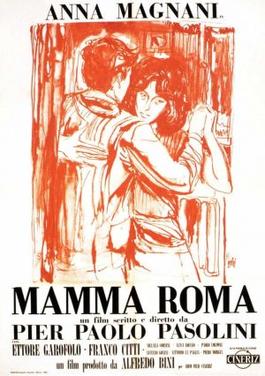 |
| Top: Ettore Garofalo in Mamma Roma. Below: Andrea Mantegna, Lamentation Over the Dead Christ, c. 1475-78 |
A blog formerly known as Bookishness / By Charles Matthews
"Dazzled by so many and such marvelous inventions, the people of Macondo ... became indignant over the living images that the prosperous merchant Bruno Crespi projected in the theater with the lion-head ticket windows, for a character who had died and was buried in one film and for whose misfortune tears had been shed would reappear alive and transformed into an Arab in the next one. The audience, who had paid two cents apiece to share the difficulties of the actors, would not tolerate that outlandish fraud and they broke up the seats. The mayor, at the urging of Bruno Crespi, explained in a proclamation that the cinema was a machine of illusions that did not merit the emotional outbursts of the audience. With that discouraging explanation many ... decided not to return to the movies, considering that they already had too many troubles of their own to weep over the acted-out misfortunes of imaginary beings."--Gabriel García Márquez, One Hundred Years of Solitude
Sunday, October 25, 2015
Mamma Roma (Pier Paolo Pasolini, 1962)
Putting a force of nature like Anna Magnani in among the unknowns and non-professionals of the rest of the cast almost upends Pasolini's film, and it reportedly caused some friction between actress and director during the filming. If Pasolini really wanted the naturalistic Magnani of Rome, Open City (Roberto Rossellini, 1948) it was much too late: By then, she had won an Oscar for The Rose Tattoo (Daniel Mann, 1955) and had become the flamboyant, histrionic Magnani who shows up on-screen in Mamma Roma. That said, Pasolini certainly gave her every opportunity to present herself that way, starting with the opening scene in which she herds pigs into the wedding dinner of her former pimp, Carmine (Franco Citti), and culminating in one of the greatest scenes (or rather, pair of scenes) of her career. I mean, of course, the long-take tracking shot in which she walks down a Roman street at night, delivering a monologue on her life, as people appear out of the darkness and recede back into it, serving as interlocutors. It's stunning the first time Pasolini (aided by his cinematographer, Tonino Delli Colli) does it, and even more remarkable when he reprises it after a crisis in her life. I think Mamma Roma is some kind of great film, notwithstanding Pasolini's tendency to be somewhat heavy-handed in his symbolism: witness the staging of the wedding dinner as a parallel to Leonardo's The Last Supper and of Ettore (Ettore Garofalo) strapped to a restraining bed to echo Mantegna's painting of the dead Christ.
Links:
Anna Magnani,
Ettore Garofalo,
Franco Citti,
Mamma Roma,
Pier Paolo Pasolini,
Tonino Delli Colli
Subscribe to:
Posts (Atom)

